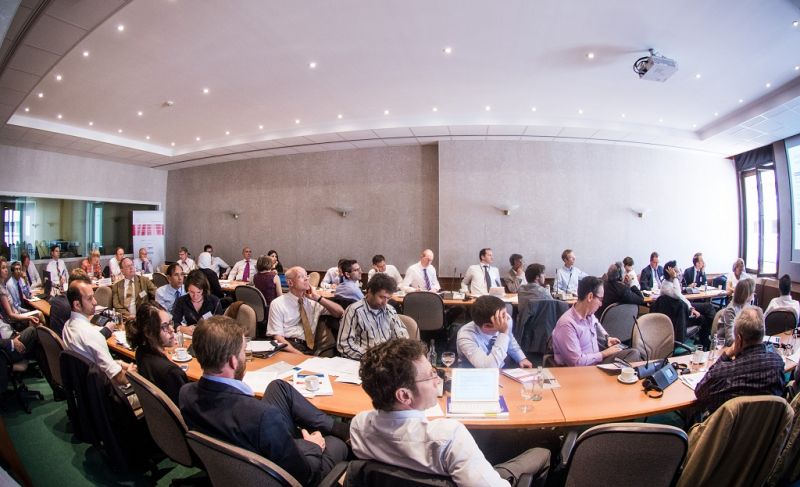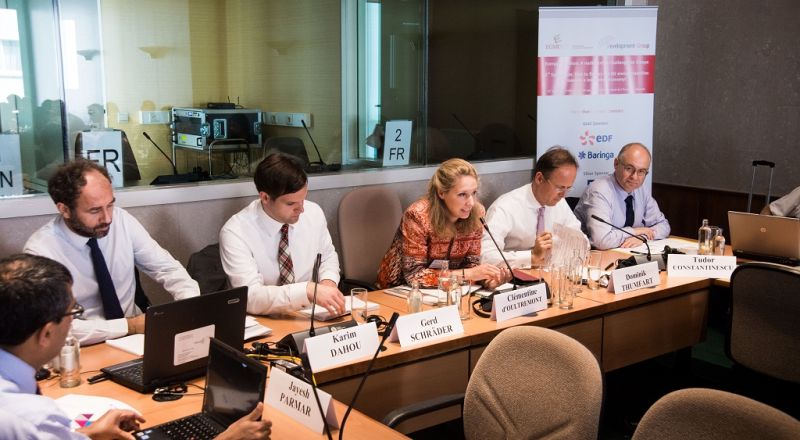How to finance the EU energy transition towards a low-carbon economy?

Date
11 June 2014
Location
CCE - Conseil Central de l'Économie/Central Economic Council, Room 6 20, Avenue d'Auderghem, B-1040 Brussels
2nd Symposium: How can we finance the EU energy transition towards a low-carbon economy?
Egmont – The Royal Institute for International Relations and the Development Group organized a symposium entitled ‘How can we finance the EU energy transition towards a low-carbon economy?’ on the 11th of June 2014. The symposium was the second of a series of events related to the multifaceted challenges of the EU energy transition towards a low-carbon economy.
In light of the ongoing revisions of the EU regulations and instruments, which will inevitably impact investment decisions in the energy sector (e.g.: the revision of the EU environmental and energy state aid guidelines, the reform of the EU ETS, the proposal on the 2030 framework for energy and climate policies, the Communication on the Long-Term Financing of the European Economy, or the implementation of the list of“projects of common interest” (PCI)), more than 70 experts discussed the main factors that affect investment in the EU energy sector.
Please find here the full report and the agenda of the Symposium. The presentations of the speakers are available in the text here-under.
Have a look at the pictures at flickr (photo credit: Keops Photographs).
Keynote address: What is the role of finance in the transition towards a low-carbon economy?
Juan Alario (European Investment Bank) pointed out that although the current context is not favourable to low-carbon technologies, it seems favourable for investments in energy efficiency. Energy efficiency has considerable potential to expand, but policy actions are needed. He also outlined issues to finance future investments, including the lack of certainty on the development of energy and climate policies, constrained corporate finance, limited public budgets, new banking rules and the mobilisation of relatively new players such as households and Energy Service Companies to invest in energy efficiency.
Session 1: Why is it currently difficult to invest both public and private funds in the European energy transition?
Michel Matheu (EDF) stressed that a stable framework is needed to give robust signals to industry and encourage investment, but the current situation is far removed from this target. Afterwards, Beate Raabe (Eurogas) added that energy suppliers need to know what will be the targets of the 2030 framework, under what conditions shale gas will be allowed, if CCS will be rolled out, and how the various issues of the internal energy market will be addressed. Finally, Jayesh Parmar (Baringa Partners) reminded that the energy revolution represents huge opportunities, and there is no shortage of money. In order to balance risk and return, the risk for infrastructure investments must be reduced and merchant investments must own responsibility for the remaining risks.
As discussant, Mechthild Wörsdörfer (European Commission) explained that the Commission has tried to propose a credible 2030 energy and climate framework that ought to reduce uncertainty. Now it is up to Member States to discuss this framework before adopting it by October.
Session 2: How to promote the necessary investment in the European energy transition?
Opening the 2nd Session, Dr Dominik Thumfart (Deutsche Bank) explained that energy infrastructure is made up of long-lived assets which need long-term financing, including project financing. He also emphasized that there are substantial pools of capital to invest in the energy transition, including equity funds, pension funds and sovereign wealth funds. Gerd Schräder (RWE Innogy) explained that the growth of renewables is changing the shape of the electricity system in Europe. RWE Innogy is therefore developing a competitive renewable energy expertise on the basis of partnering, services and green products. Afterwards, Karim Dahou (OECD) presented the OECD’s work on clean energy investment. He outlined the barriers to clean energy infrastructure investment and stressed the priorities to unlock private investment.
Finally, as discussant, Tudor Constantinescu (European Commission) pointed out some key challenges towards a successful energy transition and stressed that the energy policy framework must not only be predictable and coherent but also flexible in order to adapt to new developments and new innovative technologies in the energy landscape.
Many thanks to our
Gold Sponsors
Silver Sponsor
Bronze Sponsor
and to all speakers and participants.
(Photo credit: s-a-m, Flickr)




